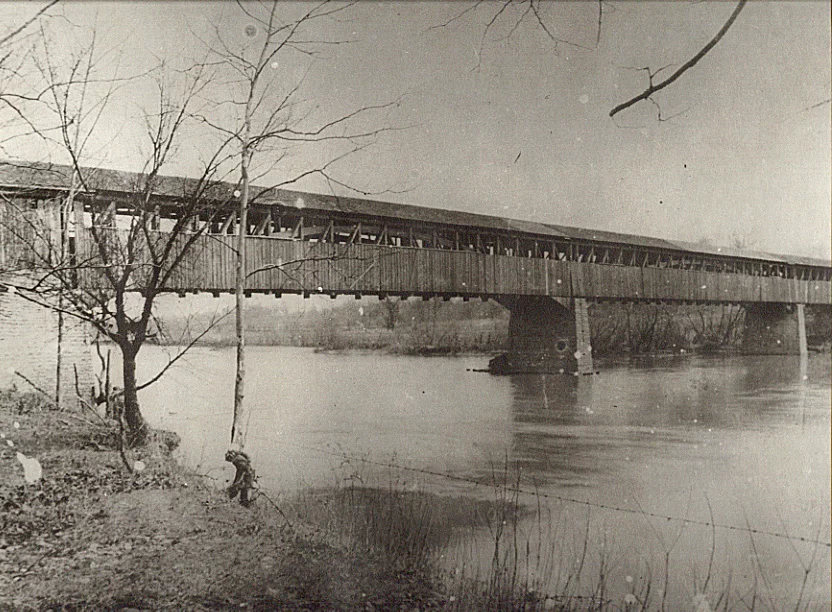The office of county engineer evolved from the important role played by the county surveyor in the first decades of Ohio’s statehood. (See current & past Butler County Engineers/Surveyors HERE!)
As early as 1785, Ohio served as a “laboratory” for the development of the Public Lands survey system. Well into the 1800s, the county surveyor was charged with the tremendous task of clarifying land titles and boundaries. After 1820, a movement for “internal improvements” swept through the state and county surveyors became increasingly involved in transportation related projects, specifically, in the development of canals and roads. By the late 19th Century, the major duty of the county surveyor was the building and maintenance of roads, bridges, and drainage ditches.
The office of county surveyor was established by the first General Assembly following the admission of Ohio to the Union in 1803. Whenever a new county was created, the county surveyor, recorder, prosecuting attorney, and clerk were appointed by a common court of appeals, which itself was appointed by the legislature. County surveyors were paid only a per diem wage ($5 in the late 1800s) for those days when they were actually employed.
In 1831, the legislature voted to make the office elective because of the increased responsibilities it entailed. The law stated the county surveyor would serve a term of three years, “if he so long behave well and until his successor be elected and qualified.” Legislation passed in 1915 established a salary and conferred on the county surveyor the title of “Resident Engineer for the State Highway Department.” In 1928, the term of office was lengthened from three years to four. Then on August 30, 1935, the title was changed to “County Engineer.” Today, only persons who hold registration certification of the State of Ohio as both “Registered Professional Engineer” and “Registered Professional Surveyor” may qualify for the office of county engineer. The elected county engineer is sworn to “perform for the county all duties authorized or declared by law to be done by a civil engineer or surveyor.” Although specifically exempt from engineering duties affecting public buildings, he is the engineer for all public improvements under the authority of the board of commissioners within and for the county.

